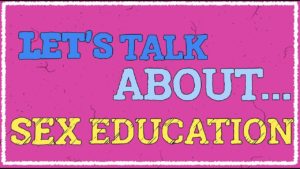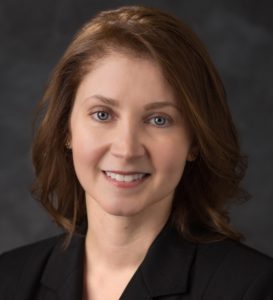This is a guest post by Mark Joseph, a sixth-grade math teacher at KIPP Rise Academy in Newark, where he has taught for thirteen years. For Mark’s other posts, see here, here, here, here, and here.
Children have never been very good at listening to their elders, but they have never failed to imitate them.
– James Baldwin

I’ve been lucky to see Dr. Jeff Duncan-Andrade speak a few times. I actually have one of his talks from 7 years ago bookmarked on my computer and watch it once a year (in much the same way that some people read Lord of the Rings once a year, I’d imagine). Dr. Jeff Duncan-Andrade is a teacher, leader, writer, activist, advocate, and much more in the Bay Area of California. He’s also the captain that launched this truth bomb almost a decade ago –
“You need to get access to what it is kids are thinking about your practice. And know that kids know where you live. They know what time you get to school. They know what time you leave. They know what kind of car you drive. And they are engaging in an evaluation, not so much of your skill as a teacher. They’re engaging in an evaluation about whether or not they can trust you based on those kinds of things. They know where you spend your time on weekends and they know where you don’t spend your time. If you’re not showing up at the Little League game, if you’re not showing up at the hoop game, if you’re not showing up at the band practice, if you’re not showing up in kids’ lives outside of 8:00 to 3:00, outside of the classroom – there’s a calculus that goes on for them that suggests that your only real interest in their life is 8:00 to 3:00. So why am I going to make a spiritual and emotional investment in you if you’re not making that kind of investment in my life outside of the classroom? And whence that calculus sets in for kids, it’s really hard for kids to learn deeply from people they don’t trust deeply.”
Said another way, kids won’t learn in a transformative way if they don’t love their teachers in a transformative way and that love, most especially on the part of teachers, must transcend the walls, hours, and expectations of “normal” school.
Extending his argument further from 2013 to 2020, it’s easy to imagine him saying something like:
Kids know what you post and what you don’t post. Kids know what you protest and what you don’t protest. Kids know what you publicize and what you don’t publicize. If you aren’t showing up for Black lives inside and outside the classroom (publicly and privately), why should they show up for you?
Or, in the paraphrased words of James Baldwin, kids might not always be listening; however, they see everything.
Now, I don’t speak for Dr. Jeff Duncan-Andrade. (Clearly.) But I do think he would appreciate the sentiment above. I also think he would caution that kids will see through any inauthentic, invulnerable actions aimed at garnering a superficial sort of goodwill with them (and, honestly, that they will probably respect you even less if you aren’t being real than if you don’t try at all).
So what do you do if you are a white teacher of Black children?
Long story short, we help do the antiracist work of abolishing white supremacy because Black lives matter.
Long story medium-ish –
- We read Ta-Nehisi Coates’ “The Case for Reparations” and Between the World Me.We read Toni Morrison’s Song of Solomon and Beloved. We read Dr. Ibram X. Kendi’s Stamped from the Beginning and How to Be an Antiracist. We read Jesmyn Ward’s Salvage the Bones and Sing, Unburied, Sing. (And more.)
- We watch Ava DuVernay’s 13th and When They See Us. We watch Spike Lee’s Do the Right Thing and Malcolm X. We watch Barry Jenkin’s Moonlight and If Beale Street Could Talk. We watch The Black Power Mixtape 1967 –1975 and I Am Not Your Negro. (And more.)
- We listen to the 1619 podcast with Nikole Hannah-Jones. We listen to the Pod Save the People podcast with DeRay Mckesson, Samuel Sinyangwe, Clint Smith, and Brittany Packnett. We listen to the Still Processing podcast with Jenna Wortham and Wesley Morris. We listen to the Code Switch podcast from NPR. (And more.)
- We play Beyonce’s “Freedom” (featuring Kendrick Lamar) and Kendrick Lamar’s “Alright.” We play Solange’s “Don’t Touch My Hair” (featuring Sampha) and Lil Baby’s “The Bigger Picture.” We play Lauryn Hill’s “Black Rage” and John Legends’ “Glory” (featuring Common). We play Jamila Woods’ “Blk Girl Soldier” and Daye Jack’s “Hands Up” (featuring Killer Mike). (And more.)
- We donate and march, post and protest, publicize and petition. (And more.)
- We rage and resist, listen and amplify, organize and vote. (And more.)
- We try and fail, reflect and try again. (And again.)
- We support the Black LGBTQIA+ community and Black-owned businesses and HBCUs. (And more.)
- We [insert any number of meaningful things here]. (And more.)
And we actually engage with our colleagues and our friends (especially with our Black colleagues and our Black friends), * with our kids and their families. **
Not because we want appreciation or awards, validation or vindication.
But simply because –
If you don’t love Black lives, why are you teaching them?
* What I mean here is that perspective and personal growth are not enough. As Edward Abbey wrote in Desert Solitaire, “one brave deed is worth a thousand books. Sentiment [and knowledge, I would argue] without action is the ruin of the soul.” We must wield our power as teachers to help dismantle systems and incidents of oppression and racism in our schools.
If our kids can’t talk in the hallway or at lunch, if our kids have limited (or no) access to recess or phys ed, if our kids receive a prescribed set of consequences regardless of context, if our kids are taught to value silence and compliance over expression and defiance (in response to 400+ years of racist ideas in America, defiance has been essential), if our kids learn a whitewashed curriculum from mostly white teachers, (and more), then our antiracist bookshelves and Instagram pages mean very little.
Put another way, it doesn’t make a lot of sense to watch Do the Right Thing if we aren’t actually going to do the right thing when it comes to our kids.
** What I mean here is that we must use our platforms as educators to elevate the beauty and struggle we witness on a daily basis. Our lessons must be revised (and probably rewritten in many cases) to reflect and reaffirm the antiracist work so that we aren’t simply paying lip service to the movement. Admittedly, this is more difficult to do during remote learning because of COVID-19.
However, it’s certainly not impossible.
Using Zoom (and / or other sites), we can put Zora Neale Hurston’s Their Eyes Were Watching God, the episode “Hope” from Black-ish, this ESPN piece about Bill Russell, Wale’s “Sue Me” (featuring Kelly Price), and / or Matthew A. Cherrin’s Hair Love in front of kids. (And more.)
We can facilitate energetic discussions about an infinite set of topics / ideas (and possibly even enable breakout rooms in the process).
And, maybe more importantly, we can ask kids what they want to read and watch and listen to and try that. (Regularly asking kids for their thoughts / feedback is great advice from Dr. Christopher Emdin in For White Folks Who Teach In the Hood…and the Rest of Y’all Too.)
No one will have better insight into your classroom (virtual or otherwise) than kids.





